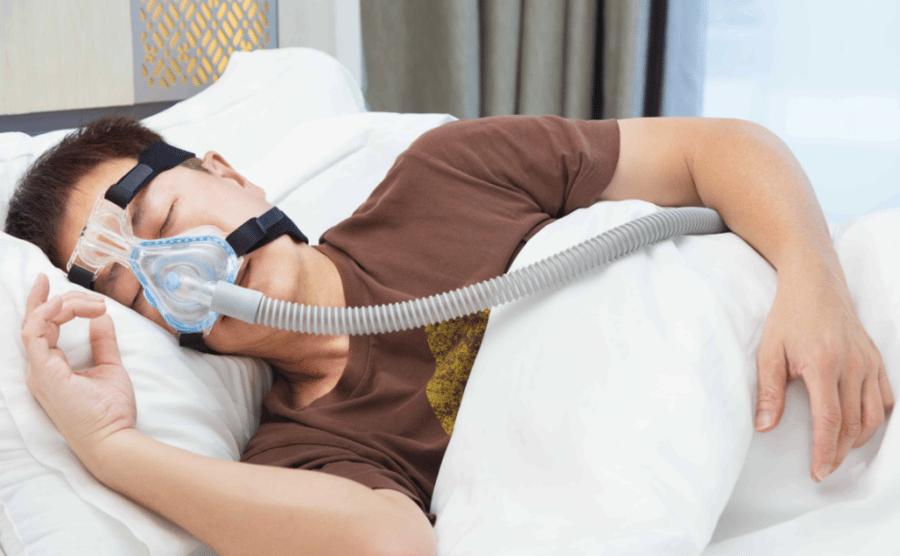Search for topics or resources
Enter your search below and hit enter or click the search icon.
May 14th, 2021 | 1 min read

Snoring is common. Studies conducted by Johns Hopkins have found that 45% of adults snore on occasion, and a full 25% snore frequently. And while snoring in and of itself isn’t always cause for alarm (though it may interfere with your partner’s sleep), it is often a warning sign of sleep apnea, a much more worrisome and potentially deadly issue.
Obstructive Sleep Apnea (OSA) is a sleeping disorder marked by periods of breathing cessation. With OSA, the tongue and soft tissue of the palate block the airways, obstructing flow and resulting in periods of not breathing. These may last up to ten seconds and are often accompanied by gasping noises when breathing resumes.
Snoring is a common symptom of sleep apnea. When snoring is chronic, it is important to consider which other sleep apnea symptoms may also be present. These include:
These warning signs of OSA should not be ignored. The condition, when left untreated, may increase the risk of high blood pressure, heart problems, type 2 diabetes, metabolic syndrome, and organ failure. It is important to bring OSA symptoms to the attention of a sleep doctor to obtain a proper diagnosis as soon as you suspect you may have it.

If OSA is the cause of your problems, treatment may be as simple as using a comfortable oral appliance to keep soft tissue and the tongue in place while you sleep. Customized to fit perfectly and unobtrusively into your mouth, sleep apnea appliances alone can often restore a full night’s sleep while reducing snoring and other symptoms of OSA.
Risk factors for OSA include obesity, tobacco use, and narcotic or alcohol use. When these factor into your case, it may be necessary to undergo lifestyle changes to treat OSA as well. At Mello & Tabib, we take time to understand the unique needs of each patient, enabling us to customize OSA treatment options.
If you suspect you have OSA or if you have been diagnosed with the disorder, we encourage you to use the contact form on this page or call our Manhattan office at 212-452-3344 or visit our website to schedule a consultation today. We serve New York City and all surrounding areas.
Topics: